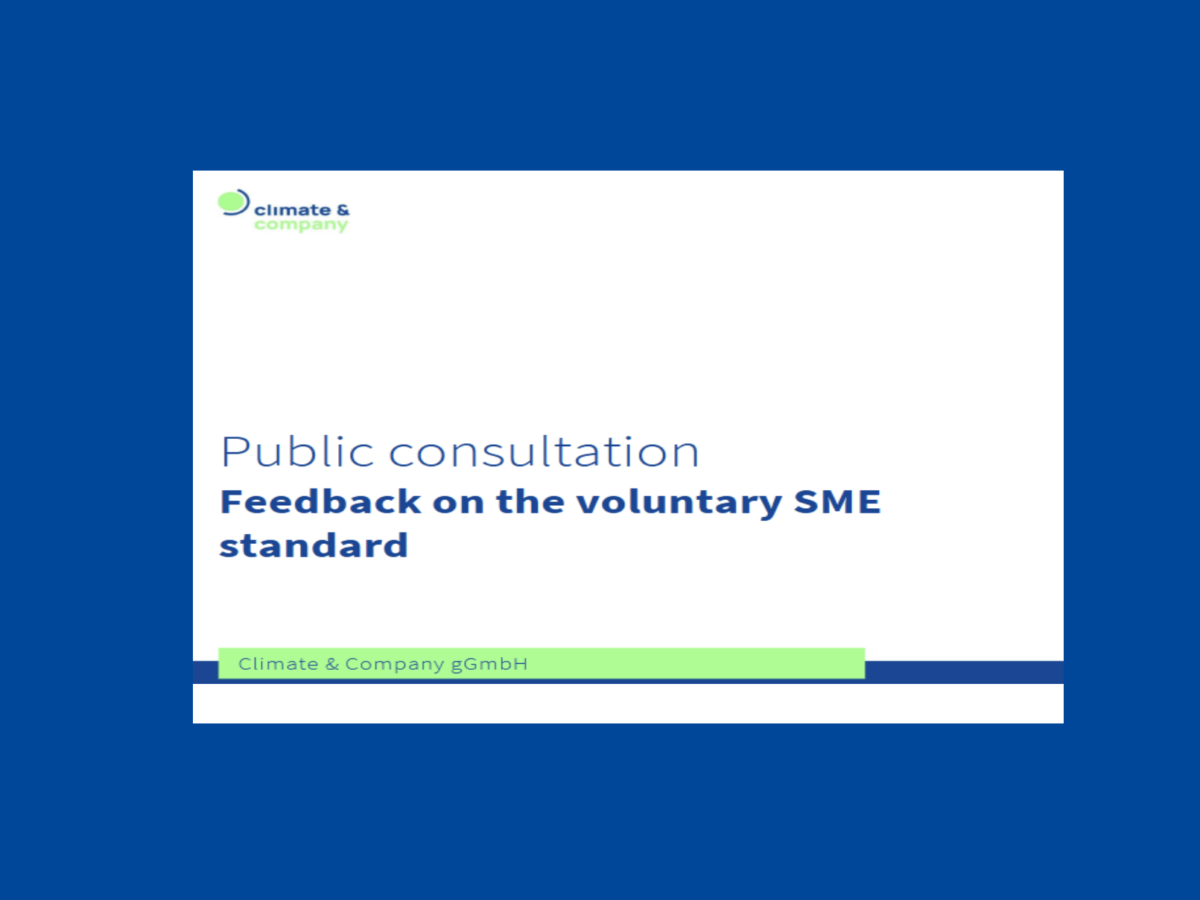
Public Consultation: Feedback on the voluntary SME standard
May 29, 2024
Climate & Company is proud to announce our active participation in the public consultation for the draft of the voluntary Small and Medium Enterprises (SMEs) standard developed by the European Financial Reporting Advisory Group (EFRAG). This initiative marks a significant step towards enhancing the sustainability reporting framework for SMEs across Europe.
Project Presentation
From February to May 2024, Climate & Company organised a series of workshops in the Stuttgart area, in collaboration with the Baden-Württemberg Ministry of Economic Affairs, Labour and Tourism. These workshops aimed to familiarise 5-10 SMEs with EFRAG’s draft voluntary SME standard, enabling them to implement essential data collection processes for sustainability reporting. Participants were also given the opportunity to take part in a field test and contribute to the public consultation of the voluntary SME standard by EFRAG.
A key outcome of this project is the creation of a practical guide for German SMEs on implementing the voluntary SME standard. This guide will simplify and abridge the standard’s requirements, offering tips, assistance, and practical examples to streamline the reporting process for SMEs.
Six Key Messages on the Voluntary SME Standard
- Overburdened by External Data Requests: SMEs often struggle with managing different platforms for customer data requests, which can lead to significant administrative efforts and potential project losses if responses are delayed. We support EFRAG’s initiative to create a systematic data collection process within the voluntary SME standard, enabling quicker and more efficient responses to external inquiries.
- Challenges in Materiality Analysis: Conducting materiality analyses poses considerable difficulties for SMEs, who struggle to prioritise aspects such as greenhouse gas reduction versus circular economy contributions. Specific, sector-based support is essential to help SMEs understand and evaluate material aspects relevant to their industries.
- Fragmentation of Sustainability Topics: The current module structure of the SME standard unnecessarily fragments sustainability topics that are typically reported together. For example, waste and greenhouse gas emissions information is dispersed across multiple modules. We advocate for a more thematically bundled and standardised structure to enhance user and reader friendliness.
- Increased Need for Support: SMEs require clearer definitions, policies, and practical examples to support their sustainability reporting effectively. Especially in areas like emissions calculation and circular economy practices, requirements need to be clarified and supplemented with practical assistance to facilitate implementation.
- Promote Flexibility and Differentiation in Reporting: The SME standard should promote flexible reporting that reflects the diversity of company sizes and business models within the SME sector. For instance, the business partner module should include an explicit request to analyse past information requests from key stakeholders and regularly report on commonly requested information. This approach would help SMEs respond more specifically to individual needs while reducing administrative burdens.
- Interaction Between Legislation and Reporting: Some disclosure requirements do not clearly add value to the reporting process, particularly those already mandated by European and national legislation. For instance, commitments and disclosures on human rights and family leave entitlements are already fulfilled through compliance with existing laws. A more focused approach could improve the relevance and efficiency of the reporting process.
Read the submission in full here below:
